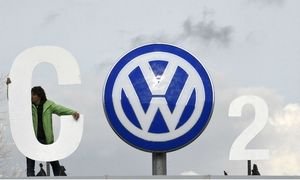Who is Having a Worse Year -- VW or Chipotle?

But which company fared worse?
Volkswagen - which is still coming to grips with an emissions-cheating scandal that broke in September -- saw its consumer perception score plummet from a score of 10 on the day the news broke to a low of -50 on Oct. 2, according to the YouGov BrandIndex, which tracks daily consumer perception. The automaker's score stood at -24 as of late last week.
Chipotle, which is dealing with a pair of illness outbreaks linked to its food, coincidentally also had a score of 10 on the day its bad news broke. But the restaurant chain has not fallen as far as VW, at least not yet. Its score dropped to a low of - 26 on Nov. 8 with a score of -13 as of late last week, according to YouGov.
Of course, Chipotle is reeling from more recent news that began circulating early last week of a norovirus outbreak linked to a Chipotle restaurant near Boston College that had sickened 141 students, according to media reports last week. That came after an E. coli outbreak that began in October that affected 52 people from nine U.S. states, including 47 people who said they ate at a Chipotle restaurant. The outbreak contributed to a same-store sales decline of 16% in November.
"Chipotle is on two strikes - one more health related outbreak and it strikes out in the court of public opinion with significant reputation damage to deal with. Let's see what happens because actions speak louder than words. It's time to live up to the purpose of 'food with integrity,' Stephen Hahn-Griffiths, U.S. vice president of strategy consulting at Reputation Institute, said in a statement last week.
VW has been reeling since the Environmental Protection Agency on Sept. 18 said the automaker installed so-called defeat devices on an estimated 482,000 vehicles in the U.S. in an attempt to evade emissions testing. The issue contributed to a 25 percent sales drop in VW brand sales last month at Volkswagen of America. While the company is nearing regulatory approval for a low-cost fix for some 8.5 million cars in Europe, its proposals are still under review in the U.S., where regulation is more stringent.
Related News
